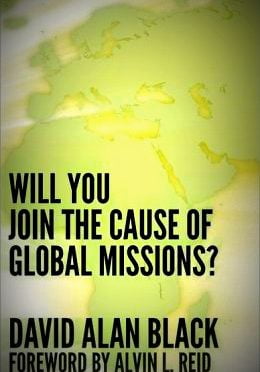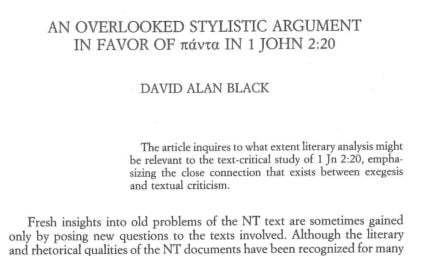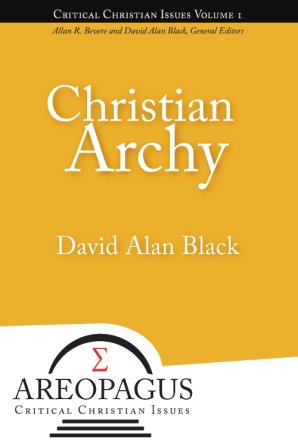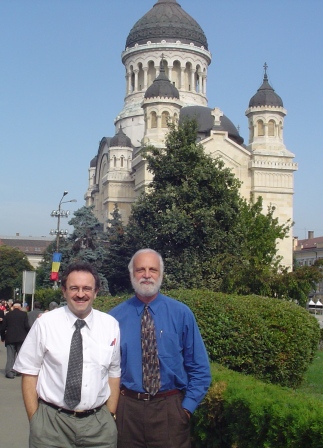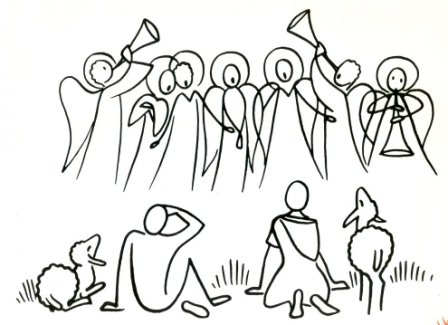(12/22/2019) 7:46 AM In Romans 15 this morning. Reminded that Paul’s ministry went through stages. This happens to us as well. We all grow. We all mature. We all develop. We all move from one stage of life to another. In Romans 15, Paul looks back on his ministry and, in effect, says, “I have fully proclaimed the gospel in the East. It’s now time to finish the great task of planting the gospel in the remainder of the Roman Empire, that is, as far as Spain.” There are two principles of life that occur to me:
1) Paul was being true to himself. Paul wasn’t a local church pastor. Paul was a missionary/church planter, a trail-blazer for the gospel. If he has planted, let others water! I must move on! Paul had one and only one ambition in life: to establish new congregations, not to build on someone else’s foundation.
2) What enabled Paul to say that it was time for him to move on? It was the fact that he could entrust his previous work into the hands of helpers like Epaphras (who established the church in Colosse) and others. Paul left no orphans behind!
I spent many minutes in prayer this morning asking the Lord to make clear to me His path in the coming years. As I write this blog post I am planning my international travel for the next two years. To the Greek mind, time was a circle imprisoning life until the soul was released through death. To the Hebrew (and Christian) mind, however, life was more of a line from past to present, the line of God’s redemptive purposes. Life was therefore meaningful. God has always been beside us on the road and is even now in charge of the route.
Of one thing I am sure. God leads His dear children along, as the old song puts it. Since 2004 Becky and I were involved in ministry in Ethiopia, where she was raised as an MK. This meant 14 trips for her and 17 for me. It’s been several years since I’ve been back. This was not unintentional. If Becky’s parents planted, Becky and I watered. Our work in Ethiopia was a most wonderful thing. But our work there is now completed. It’s time for others to carry it forward. Our ministry there will either rise like the Phoenix or go down in flames but we leave that in the hands of God.
In recent years I’ve made 13 trips to Asia to assist in the training of pastors. It was an unavoidable call. As we all know, in much of the world there has been much numerical growth without very much depth. There hasn’t been sufficient growth in discipleship that is comparable to the growth in members. Into this situation I found myself teaching Greek. I saw myself as a clay pot — common stuff, replaceable, but holding a priceless treasure that I was eager to pass on to others. That has now been done, and I sense it is time to pass the baton.
What’s the next place in God’s plan for my international ministry? What is my “place,” after all? What was our Lord’s place? It was that of a servant. A lowly slave. Can it be any different for those of us who claim to follow Him? Christ’s servants must be humble enough to be flexible. Paul certainly was. His obedience to the Father enabled him to do anything, go anywhere the Spirit sent him. No wonder he wrote, “There must be no room for rivalry and personal vanity among you, but you must humbly reckon others more important than yourselves. Look to each other’s interest and not merely to your own.” If we think of others before ourselves, everything else will fall into place. God will never disappoint us. He has a good purpose for every one of His children. Is there any joy more exhilarating than the joy of knowing He will help you maneuver through the stages of life? He cares about these things and more. You’ve got His word on it.
(From Dave Black Online, used by permission.)
